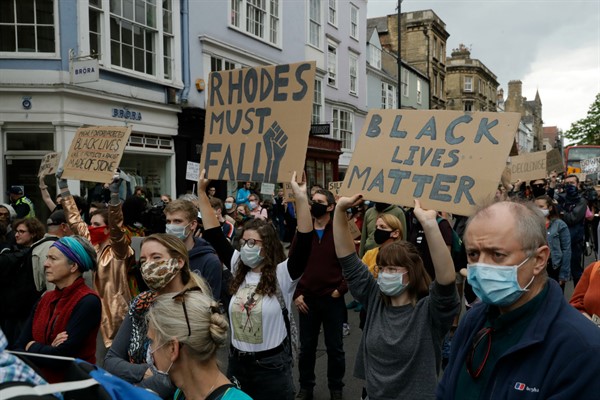Black Lives Matter protests have erupted in cities across Europe in recent weeks, in solidarity with the uprisings in the United States following the killing of George Floyd by a Minneapolis police officer in May. Some European demonstrators have called on their governments to more formally acknowledge the connections between the slave trade and colonialism and racism in their countries today.
In Europe’s two largest former colonial powers, France and the United Kingdom, there are signs that protests are eroding the popular indifference toward their history. While France and the U.K. have never apologized for their colonial past, they have come close to it. The British government has expressed regret for specific colonial-era atrocities, and French President Emmanuel Macron has called the French role in Algeria a “crime against humanity.” But such statements remain controversial. Both British and French colonial legacies—and the enduring racism they helped foster—continue to act as barriers to change, if in different ways.
Slavery and its consequences are important elements of the Black Lives Matter protests in the U.S., and they have played some role in Europe as well. In some British cities, for example, protests have led to the removal of statues of notable slaveowners and slave traders, such as Edward Colston in Bristol, an official of the Royal Africa Company who trafficked an estimated 84,000 Africans to the Caribbean and the American mainland in the 17th century. However, the number of Europeans involved in the Atlantic slave trade was small compared to those involved in their respective colonial empires, and slavery was largely absent in France and the United Kingdom. Hence, colonialism occupies a larger place in how most French and British citizens see their own history.

